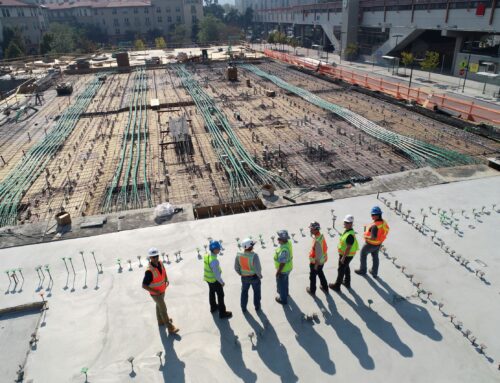 Everyone in construction knows having a good project manager is a key contributor to the success of a project. They’re like gorilla glue that holds everything together!
Everyone in construction knows having a good project manager is a key contributor to the success of a project. They’re like gorilla glue that holds everything together!
If you’re a project manager or are thinking about making it a career, there are some things you need to know!
Project managers oversee the whole building process from start to finish, connecting all the moving pieces and parts of a project. They engage with all the parties involved — from stakeholders and owners to supervisors and work crews to vendors and subcontractors. They oversee:
- The budget
- The schedule and workflow
- Obtaining materials and equipment
- Coordinating conversations between owners, architects, and engineers
- Selecting subcontractors
With such a significant and diverse task list, project managers must also have a large and diverse skill set. Some of these skills include, but are not limited to:
- Problem-solving
- Communication skills
- Research planning
- Cost management
- Time management
- Detail orientation
- Relational leadership
- Patience
Organizing the workflow of a whole building project is a lot of work –it takes more than hard skills to be an effective project manager.
4 Tips for Efficient Project Management –
-
Get the Big Picture
Of course, you must understand the details and see the big picture. Carefully plan out a roadmap covering everything from the budget and resources — workforce, equipment, and materials — to the specifications and details of the building itself. Work with your team to create a workflow and schedule. However, allow for “wiggle room.” For example, you will likely deal with weather and shipment delays. The goal is always to be one step ahead of them.
-
Stay Engaged
A project manager’s primary role is to be the in-between everyone involved with the project. Staying engaged and building trust with those above and beneath you is very important; it is key to being an effective project manager. It takes a lot of relationship-building and interpersonal skills. You must:
- Be an expert communicator — in both written and oral communication
- Delegate and collaborate with supervisors and foremen
- Keep owners and investors informed
- Build relationships with vendors and subcontractors
- Check-in regularly with the crews
- Being available for questions, input, and concerns
- Address safety concerns
- Run quality control checks
- Directly supervise important projects
-
Keep Track
As the primary point of contact, project managers must keep track of a constant flow of information and data. Construction projects tie to contracts, which connect to financial obligations. Failure to track and document every piece of pertinent information could lead to liabilities and legal disputes. So be a stickler about keeping a paper trail. Plus, careful tracking gives you a measuring stick to chart the progress of the whole project.
-
Be Adaptable
You must be adaptable and flexible where needed. Delays happen. Weather doesn’t cooperate, and you must adjust and move things back to keep them moving forward. Sometimes, especially in light of current supply chain shortages, all you can do is “hurry up and wait.” It takes some patience! However, in the long run, this flexibility helps the project stay on task and track.
Are you looking for a new opportunity to test your project management skills? With a focus on commercial, industrial, and marine construction, we at Gillmann Services Inc. are experts at matching talent to opportunity. Our motto is, “We work for you!” Call us today!





